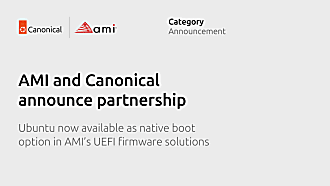Canonical
on 11 December 2013
Ubuntu and HP: a successful team in the education sector
Ubuntu and Hewlett-Packard have shipped over one and a half million laptops directly into education. These were bought by both individuals, and institutions.
In India’s northern state of Uttar Pradesh the government knows that investing in laptops and making them readily available to students is a powerful way to help their knowledge economy develop. The great language support, which includes Hindi, Urdu and Assamese, generated a lot of enthusiasm for the Ubuntu-HP proposition, and made the laptops highly accessible to the graduating year 12 students who qualified to receive one.
Across Mexico, Ubuntu-HP laptops sell directly off the shelf of the retail chain Bodega Aurerra. They’re ideal for students who want to access great productivity software, email, and web browsing in an affordable high-performance package. Available in several hundred stores the initial batch sold out three times faster than anticipated.
In China, HP sells Chinese-centric versions of Ubuntu laptops in 1500 of it’s retail stores. The HP Pavilion G14 and G15 come with the same bundled software, support for localisation, low-cost and high performance that makes them ideal for students in India and Mexico.
So what makes Ubuntu-HP computers so good in the education sector?
Firstly, HP specifies laptops to run Ubuntu. The Ubuntu OS carries a small footprint, which works well on affordable hardware, perfect for educators’ and students’ often tight budgets.
Secondly, it’s low-cost, and proven. Ubuntu carries no licence costs, so Institutions don’t have to manage compliance or make large licence payments.
Thirdly, Ubuntu HP computers are secure and virus resistant through its firewall, anti-virus, update structure and the responsiveness of the security team.
Fourth, it has all the productivity software that students need in LibreOffice, and an abundance of Education applications are available on the Ubuntu Software Centre.
Fifth, there are support options like Canonical’s Landscape system management tool and Advantage support service for managing large estates.
“We’re really pleased our long-term partnership with Hewlett-Packard brings affordable, high-performing computers to the education sector worldwide,” explains Maria Bonnefon, Director, channel and market development “we can see what a difference they make, and are looking forward more involvement with those in education, and in our continuing relationship with HP”.
To find out more visit us on booth #599 at HP Discover in Barcelona until the 12th December 2013. Look forward to seeing you there!



